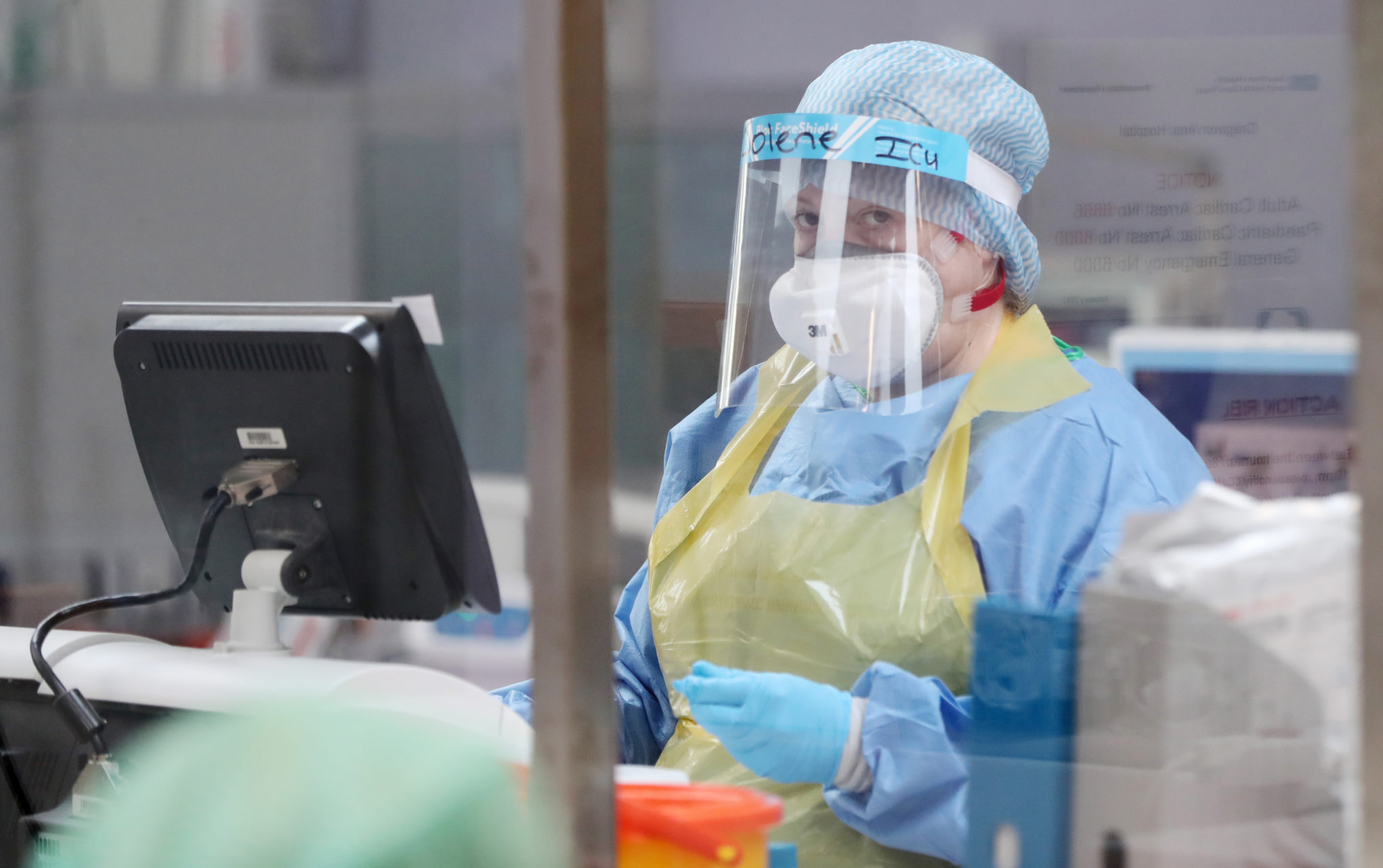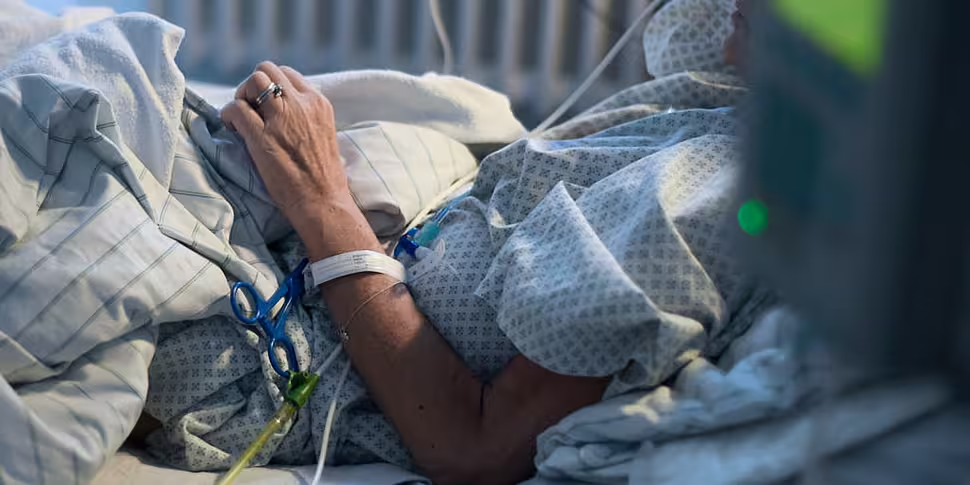Healthcare workers are worried about the gradual increase in patient admissions to intensive care units in hospitals, according to an ICU Consultant.
Dr Catherine Motherway, Consultant in Intensive Care Medicine at University Hospital Limerick, said around 10 to 15% of people who are hospitalised with the virus will end up being admitted to ICU.
Three deaths and 1,012 cases were reported yesterday, the highest daily number of new coronavirus cases since the height of the pandemic in April.
It has since emerged that Ireland could be facing a new lockdown within ten days if COVID-19 cases continue to rise.
A senior government source told the Sunday Independent that the move towards a new lockdown now looks increasingly possible, with a recommendation expected after Thursday's NPHET meeting.
It comes after the Tánaiste Leo Varadkar previously admitted that a "short, sharp" circuit break lockdown may be needed to reduce COVID-19 case numbers.
As of 2pm yesterday, 199 patients were being treated for the virus in hospital, of which 31 are in ICU.
Dr Motherway told Newstalk Breakfast with Susan Keogh: "We know that as the numbers go up we will see more [hospitalisations].
"My experience on the ground is that we are witnessing in the critical care community a gradual increase in the number of patients being admitted to the intensive care units and we are worried.
"The numbers this time around are slightly different than they were in March because in March everybody who was being tested was symptomatic whereas on this occasion a significant number of those cases are being detected by contact tracing.
"The key is to find all of the cases, isolate the cases, treat those that need treatment and keep going in that sense.
Dr Motherway said the likely percentage of people who have been hospitalised with coronavirus who will subsequently be admitted to ICU stands at between 10 and 15%.
She said: "The disease is the disease so if people end up requiring hospital admission a significant proportion of those people will require critical care."
She added that there have been "some advances in the way we manage the disease which may help", including the use of steroids, positioning patients on their stomachs, and avoiding invasive mechanical ventilation in the initial stages.
Dr Motherway said: "Some people come into hospital and they're unwell and they go home again, people get COVID, they get unwell with COVID, and the vast majority will recover."
 A member of the intensive care team treats COVID-19 patients at Craigavon Area Hospital in Co Armagh, Northern Ireland. Picture by: Niall Carson/PA Wire/PA Images
A member of the intensive care team treats COVID-19 patients at Craigavon Area Hospital in Co Armagh, Northern Ireland. Picture by: Niall Carson/PA Wire/PA ImagesICU beds
Dr Motherway said that there were 255 open critical care beds at the beginning of the pandemic.
She said: "There was funding allocated for an additional number of beds and that number is between 280 and 285 depending on the given day and that is because numbers will vary based on staffing and acuity of patients.
"Yesterday evening, there were 276 open beds in the system of which 237 were occupied, which included the 30 COVID patients.
"Our critical care system runs on average an occupancy of 88% nationally and over 95% in the larger intensive care units that take more complex patients.
"We have a very stretched system to start with which is why we do need the public to try and comply to the best of their ability with reducing social contacts, physical distancing, mask-wearing.
"This is to try and limit the chance of them getting sick, to improve the chances of other people who need to go to hospital to get a bed, and to try and protect the hospital system.
"The only way to do that...is people trying to reduce the transmission. They did it in March and they did it in April and they can do it again."
'Tired and anxious'
Dr Motherway added that "hopefully some of what people are already doing is going to help us but we need to do it a bit more efficiently and effectively".
She said: "We can't stop people getting sick from other diseases and requiring crucial care.
"There will always be non-COVID critical care activity, we can't stop it.
"Our hospital system takes in emergency cases so we can't stop emergency admissions."
Dr Motherway added that healthcare workers are "a bit tired and a bit anxious".
She said the latest COVID-19 numbers "make the public anxious and they make us anxious".
She said: "None of us want a lockdown per se, what we want is a reduction in the cases, however that is achieved.
"There is no doubt that we are very anxious about what is ahead of us, we are worried about the winter, we don't think its going to be very pleasant.
"But all we can do is get up in the morning and go to work and do our best and to try and continue to engage with all sectors of the pop to see if we can find a way through this period of time."









